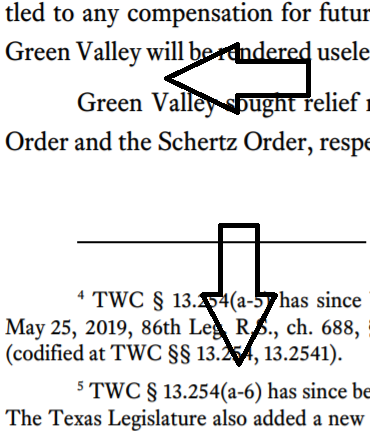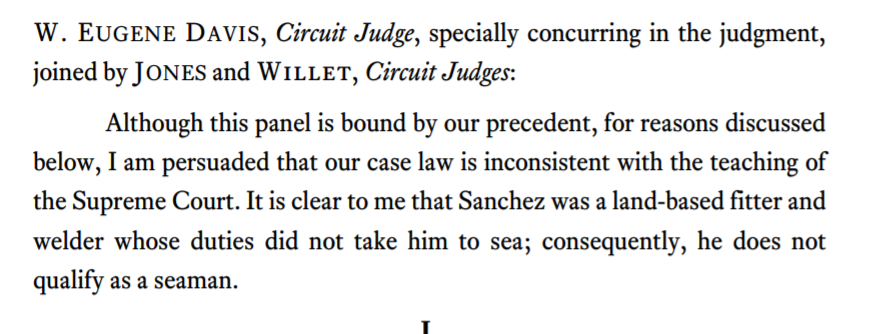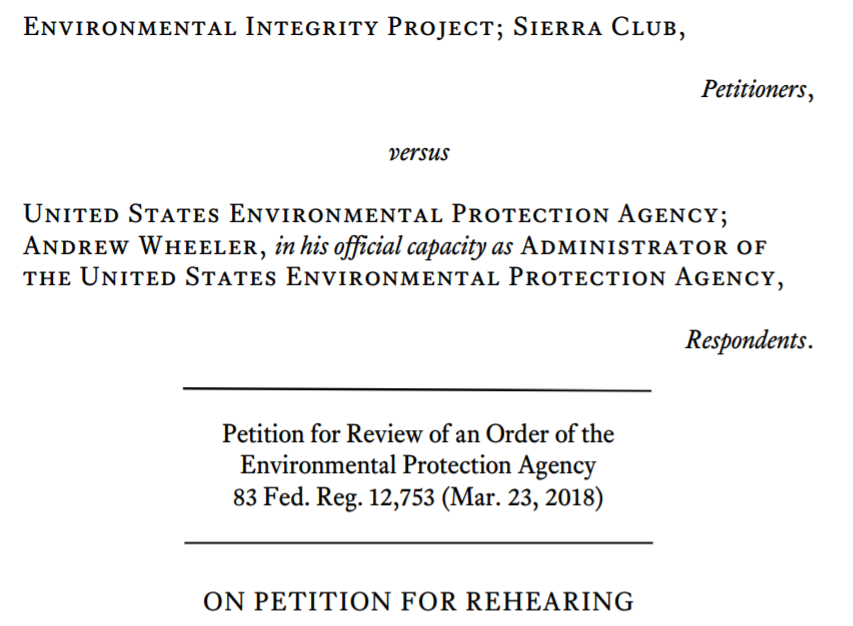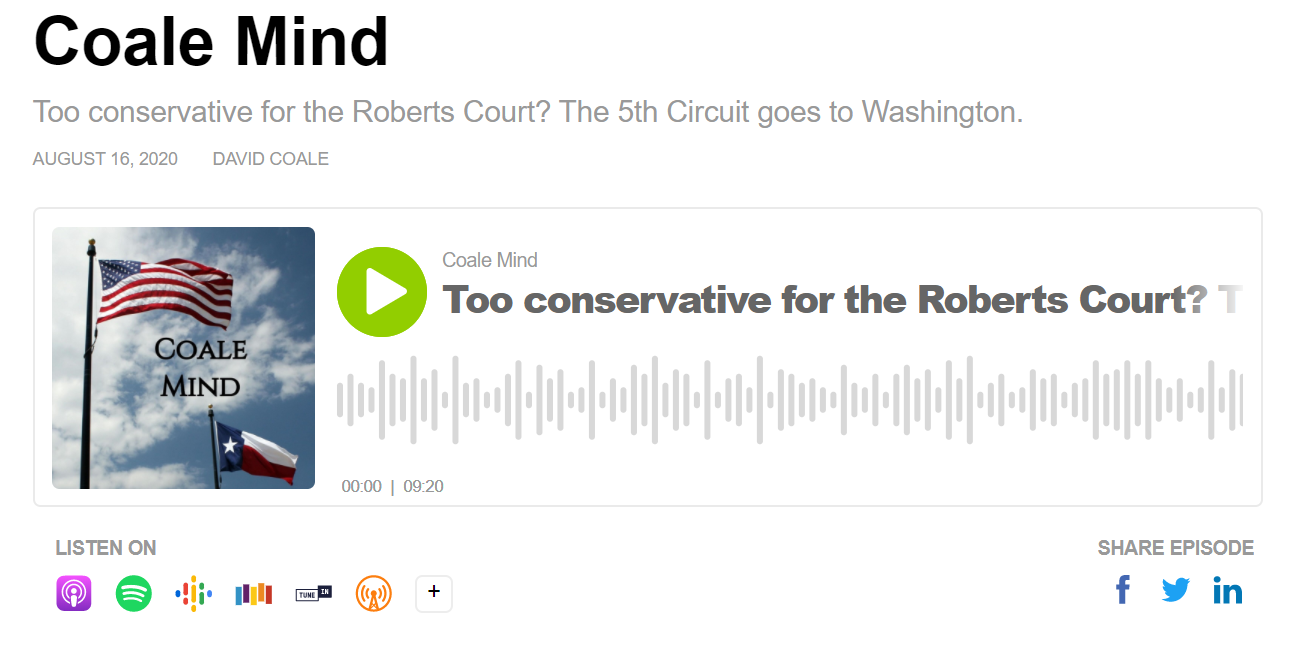 Earlier this month, the Fifth Circuit found an abuse of discretion, under Texas substantive law, in not modifying a noncompetition agreement at the preliminary-injunction stage. Calhoun v. Jack Doheny Cos., Inc. But because the parties had settled their case in the meantime, notifying the district court but not the Fifth Circuit, the case had become moot at the time of that opinion, prompting the Court to withdraw its opinion and dismiss the matter with prejudice. No. 20-20068 (Aug. 28, 2020).
Earlier this month, the Fifth Circuit found an abuse of discretion, under Texas substantive law, in not modifying a noncompetition agreement at the preliminary-injunction stage. Calhoun v. Jack Doheny Cos., Inc. But because the parties had settled their case in the meantime, notifying the district court but not the Fifth Circuit, the case had become moot at the time of that opinion, prompting the Court to withdraw its opinion and dismiss the matter with prejudice. No. 20-20068 (Aug. 28, 2020).
 (This activity about a case named Calhoun prompted me to check in on the M/V CALHOUN, a ship that under another name created a memorable mootness argument– “The ship has sailed!” – when it left the Fifth Circuit before creditors could seize it. The ship continues to be elsewhere, arriving in Venezuela as of the date of this post.)
(This activity about a case named Calhoun prompted me to check in on the M/V CALHOUN, a ship that under another name created a memorable mootness argument– “The ship has sailed!” – when it left the Fifth Circuit before creditors could seize it. The ship continues to be elsewhere, arriving in Venezuela as of the date of this post.)















